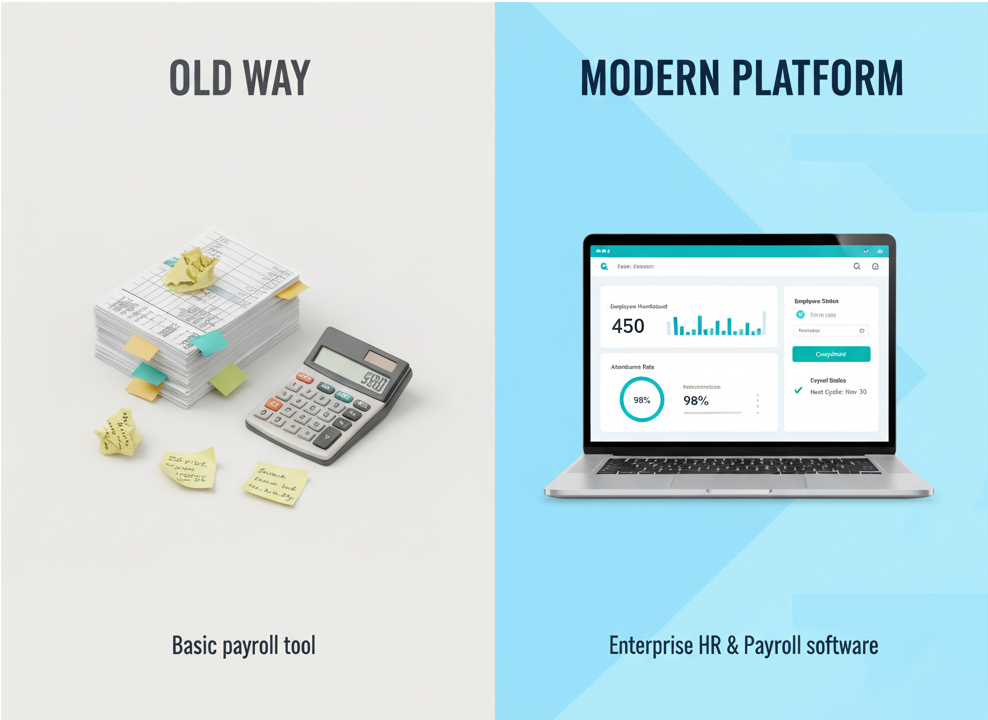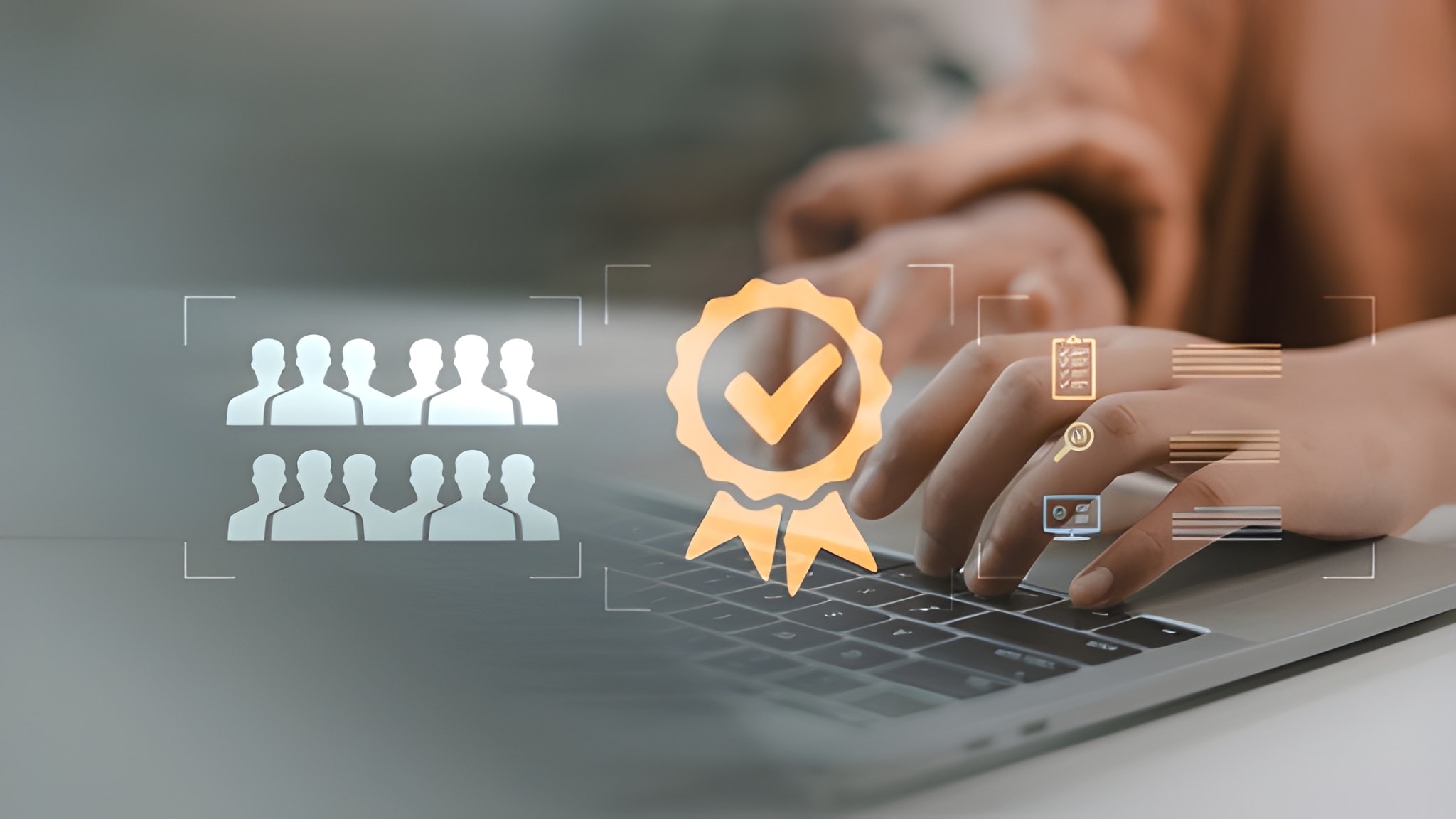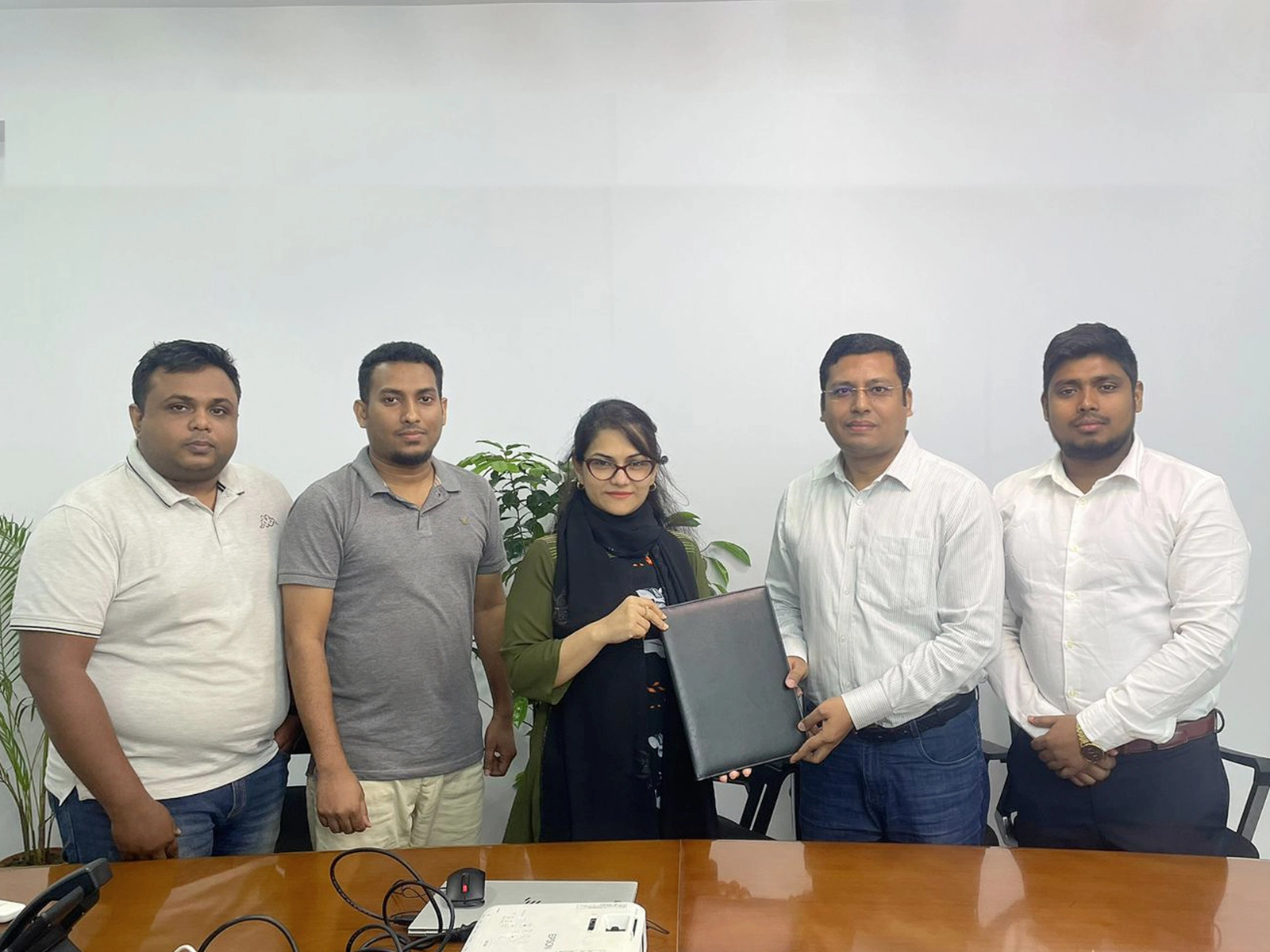If you manage hundreds or thousands of people, HR and payroll are no longer “back-office admin”. They are core to trust, compliance, and business continuity. Yet many enterprises still juggle spreadsheets, standalone attendance devices, and basic payroll tools.
This guide explains what enterprise HR & payroll software actually is, why it matters, and how our platform, SystechiHR, can help you manage everything from recruitment to retirement in one place.
What is Enterprise HR & Payroll Software?

Enterprise HR & payroll software is a unified system that manages:
- Employee data (HRIS)
- Time & attendance
- Leave and absence
- Payroll & statutory compliance
- Performance and talent
- Employee self-service and analytics
Unlike basic payroll tools that only calculate monthly salaries, enterprise platforms centralise HR and payroll on a single database, automate calculations, and support multiple branches, complex shifts, and different employee types.
Basic Payroll vs Enterprise HR & Payroll

When you compare a basic payroll tool with a complete enterprise HR and payroll software, the difference becomes very clear. One is made only for doing salary calculations. The other supports your whole team, your whole company, and your whole HR journey from start to finish.
| Feature | Basic Payroll Tool | Enterprise HR & Payroll Software |
| Core focus | Salary calculation only | Full employee lifecycle, HR + payroll |
| Data source | Manual Excel imports | Central HRIS database |
| Attendance integration | Often manual | Biometric, mobile, GPS, and device integrations |
| Compliance support | Limited | Country-specific tax and labour rules built in |
| Scalability | Small teams | Hundreds to thousands of employees |
| Self-service | Rare | Standard (web and mobile ESS) |
| Analytics | Minimal | Dashboards and detailed HR/payroll reports |
SystechiHR sits firmly in this second category: a complete HR and payroll solution that automates attendance, leave, payroll, recruitment, performance, and employee self-service for companies in Bangladesh.
The Real HR & Payroll Challenges at Enterprise Scale
As organisations grow, HR and payroll problems multiply:
- Data silos
- Employee information in files, attendance in devices, payroll in spreadsheets.
- Every change (promotion, transfer, allowance) must be updated in multiple places.
- Employee information in files, attendance in devices, payroll in spreadsheets.
- Manual work and errors
- Copy-pasting timesheets into payroll introduces mistakes.
- Over time, leave without pay, arrears, and tax adjustments are easy to miscalculate.
- Copy-pasting timesheets into payroll introduces mistakes.
- Compliance risk
- Labour law, minimum wage, overtime rules, tax slabs, PF, and gratuity requirements are complex..
- Mistakes lead to penalties and reputation damage.
- Labour law, minimum wage, overtime rules, tax slabs, PF, and gratuity requirements are complex..
- Lack of visibility
- Leadership does not get real-time views of headcount, overtime cost, absenteeism, or payroll spend across branches.
- Leadership does not get real-time views of headcount, overtime cost, absenteeism, or payroll spend across branches.
- Scalability and consistency
- A setup that worked for 50 people breaks with 1,000+ employees, multiple factories, sites, or offices.
- A setup that worked for 50 people breaks with 1,000+ employees, multiple factories, sites, or offices.
Enterprise HR & payroll software is designed to solve exactly these problems with one connected platform.
Core Components of an Enterprise HR & Payroll Platform

1. HRIS – The Central Employee Database
The HRIS (Human Resource Information System) is the backbone:
- One profile per employee: personal details, job information, salary history, documents, assets.
- Organisational structure: companies, locations, departments, reporting lines.
- Full movement history: promotions, transfers, increments, confirmations, separations.
In SystechiHR, the HRIS acts as the single source of truth for all employee data, ensuring payroll, attendance, and performance draw from the same records.
2. Time & Attendance Management
Accurate time and attendance data is critical for payroll:
- Biometric and face devices at gates and doors
- Mobile and GPS attendance for field staff
- Shift, roster, and grace-time rules by location or employee group
- Real-time dashboards showing who is present, late, or absent
In an integrated system, approved attendance feeds payroll automatically, which significantly reduces manual adjustments and disputes.
3. Leave & Absence Management
Instead of leave forms and informal WhatsApp messages:
- Configurable leave types (annual, casual, sick, maternity, special, etc.)
- Policy rules by grade, length of service, or location
- Online requests and approvals (web and mobile)
- Automatic leave balance updates and visibility for employees and managers
Because leave is part of the same system, unpaid leave and encashment impact payroll calculations without extra work.
4. Payroll Management
Payroll is where everything converges:
- Salary structure: basic, allowances, deductions, benefits
- Overtime and holiday pay for attendance
- Taxes, PF, gratuity, loans, advances, bonuses
- Bank advice, payslips, and statutory reports
Modern systems automate these calculations and update when regulations change, helping maintain compliance with tax and labour requirements.
SystechiHR focuses strongly on this area for enterprises, embedding local salary structures, tax rules, and benefits into its payroll system.
5. Performance & Strategic HR
Beyond transactions, enterprises need a view of performance and potential:
- Goal and KPI setting
- Mid-year and annual appraisals
- Competency and behaviour ratings
- Linkage with increments, promotions, and training plans
This elevates HR from “salary processing” to strategic workforce management.
6. Employee Self-Service (ESS) & Mobile Apps
Employees expect transparency and self-service:
- View attendance, leave balances, and payslips
- Submit leave, regularisation, and basic requests
- Update basic personal details
- Receive announcements and policies
This reduces HR admin workload and improves employee experience. Integrated HR & payroll platforms often emphasise ESS as a key benefit.
SystechiHR offers web and mobile self-service to engage employees “from recruitment to retirement” on its on-premise and SaaS platform.
7. Analytics & Reporting
With everything in one system, enterprises can finally see:
- Headcount by location, grade, or department
- Over time, absenteeism and late arrival trends
- Payroll cost by unit, project, or cost centre
- Attrition and movement patterns
Enterprise-Grade Requirements: What to Look For

1. Security & Data Privacy
- Role-based access and approvals
- Audit trails for sensitive changes
- Encryption and regular backups
2. Compliance
- Support for local labour law and tax rules
- Automatic updates when rules change
- Ready-made statutory reports
3. Scalability & Performance
- Ability to support thousands of employees across many sites
- Stable performance during heavy tasks like month-end payroll
4. Integration
- Biometric and attendance devices
- Accounting or ERP systems
- Banking interfaces for salary disbursement
5. User Experience & Adoption
- Clean, intuitive interface for HR and employees
- Strong onboarding and training support
Our software is designed to understand your industry and local regulations, so it always delivers smoother implementations and better long-term value.
How Integrated HR & Payroll Works in Practice
A simple way to picture it is as a continuous flow:
- Hire: HR creates an employee in the HRIS with a job role, grade, salary, and policies.
- Capture time: Attendance flows in via devices or mobile apps, plus approved leave and overtime.
- Run payroll: The system combines salary structure, attendance, and rules to calculate pay, deductions, and contributions.
- Disburse: Bank files and payslips are generated with a click.
- Report & analyse: HR and finance review dashboards and reports for audits, forecasting, and planning.
Because everything is integrated, there is no need to re-enter data, which dramatically reduces errors and processing time.
Business Benefits & ROI of Enterprise HR & Payroll Software

Enterprises that adopt integrated HR & payroll platforms typically see:
- Time savings
- HR teams spend less time collating attendance, preparing sheets, and fixing mistakes.
- HR teams spend less time collating attendance, preparing sheets, and fixing mistakes.
- Fewer errors
- Automated calculations and single data entry reduce payroll disputes and rework.
- Automated calculations and single data entry reduce payroll disputes and rework.
- Compliance confidence
- Regular updates and built-in rules lower the risk of non-compliance penalties.
- Regular updates and built-in rules lower the risk of non-compliance penalties.
- Better employee experience
- Self-service portals, timely salaries, and transparent leave balances build trust.
- Self-service portals, timely salaries, and transparent leave balances build trust.
- Stronger HR analytics
- Real-time visibility into workforce cost, productivity, and movement supports better decisions.
- Real-time visibility into workforce cost, productivity, and movement supports better decisions.
Example ROI Levers:
| Area | Before Software | After Enterprise HR & Payroll |
| Payroll processing | 5–7 days of manual work | 1–2 days with automation |
| Attendance errors | Frequent disputes | Minimal errors with device sync |
| Compliance risk | High (manual checks) | Reduced (system-driven rules) |
| HR admin workload | Heavy (queries, printing payslips) | Lighter (self-service) |
How to Evaluate and Choose the Right Platform
When you are shortlisting enterprise HR & payroll solutions:
- Map your requirements
- Employee count, locations, industries, complexity (shifts, contracts).
- Employee count, locations, industries, complexity (shifts, contracts).
- Check local fit
- Does the system support your country’s labour law, tax rules, and statutory benefits?
- Does the system support your country’s labour law, tax rules, and statutory benefits?
- Review modules and roadmap
- HRIS, attendance, leave, payroll, performance, recruitment, ESS, mobile.
- HRIS, attendance, leave, payroll, performance, recruitment, ESS, mobile.
- Assess deployment options
- Cloud vs on-premise and how that fits your IT policy.
- Cloud vs on-premise and how that fits your IT policy.
- Verify integrations
- Attendance devices, accounting/ERP, banks.
- Attendance devices, accounting/ERP, banks.
- Consider support and training
- Implementation methodology, local support team, response times.
- Implementation methodology, local support team, response times.
Why Enterprises Choose SystechiHR

SystechiHR is recognised as one of Bangladesh’s leading HR & payroll platforms, used by 200+ companies across 15+ industries.
It’s a product of Systech Digital Ltd, a CMMI Level 3 and ISO-certified software company with decades of experience delivering enterprise solutions.
You will get a platform designed and maintained by a team that understands large-scale systems and local business realities.
Complete HR & Payroll in One Platform
SystechiHR brings together:
- HRIS and organisational structure
- Attendance and shift management
- Leave and absence
- Payroll with Bangladesh-specific tax, PF, gratuity, and bonuses
- Recruitment and onboarding
- Performance management and appraisals
- Employee self-service and mobile apps
- Analytics and reporting
It is available as both On-premise and SaaS, giving enterprises flexibility in deployment.
Designed for Bangladeshi and Regional Enterprises
Because SystechiHR has been built and refined in Bangladesh, it reflects the realities of:
- RMG and textile factories with thousands of workers
- Manufacturing plants and industrial groups
- Corporate offices, banks, and service companies
- Hospitals, NGOs, and development organisations
Strong Support and Partnership
We backs the software with:
- Implementation consulting
- Device integration support
- On-site and remote training
- Ongoing helpdesk and continuous enhancement
For enterprises, this combination of product depth, local compliance, and support is often more important than any single feature.
Implementation Roadmap: Rolling Out SystechiHR
A typical enterprise rollout follows clear phases:
- Discovery & Design: Understand your structure, policies, and current processes.
- Configuration: Set up companies, locations, grades, pay structures, and rules.
- Data Migration: Import employee records and, where needed, historical data.
- Device & System Integration: Connect attendance devices and, if needed, ERP or accounting systems.
- Pilot Run: Run payroll in parallel for one or two cycles and fine-tune.
- Go-Live: Switch to live processing in SystechiHR.
- Post-Go-Live Support: Close monitoring, quick fixes, and user feedback.
Because our software has implemented HR & payroll for enterprises across many industries, the team can guide you through each step in a structured way.
Ready to Modernise HR & Payroll in Your Enterprise?

Enterprise HR & payroll software is no longer a “nice to have”. It is the foundation for accurate salaries, compliance confidence, and a better employee experience.
SystechiHR combines:
- A complete HR & payroll feature set
- Deep localisation for Bangladeshi regulations
- Flexible On-premise and SaaS deployment
- The backing of an experienced, certified software company
If you are planning to modernise or replace your existing HR and payroll systems, this is the ideal time to see how SystechiHR can fit your enterprise.
Next step: Book a personalised demo with our team and explore how the platform can support your organisation from recruitment to retirement.











